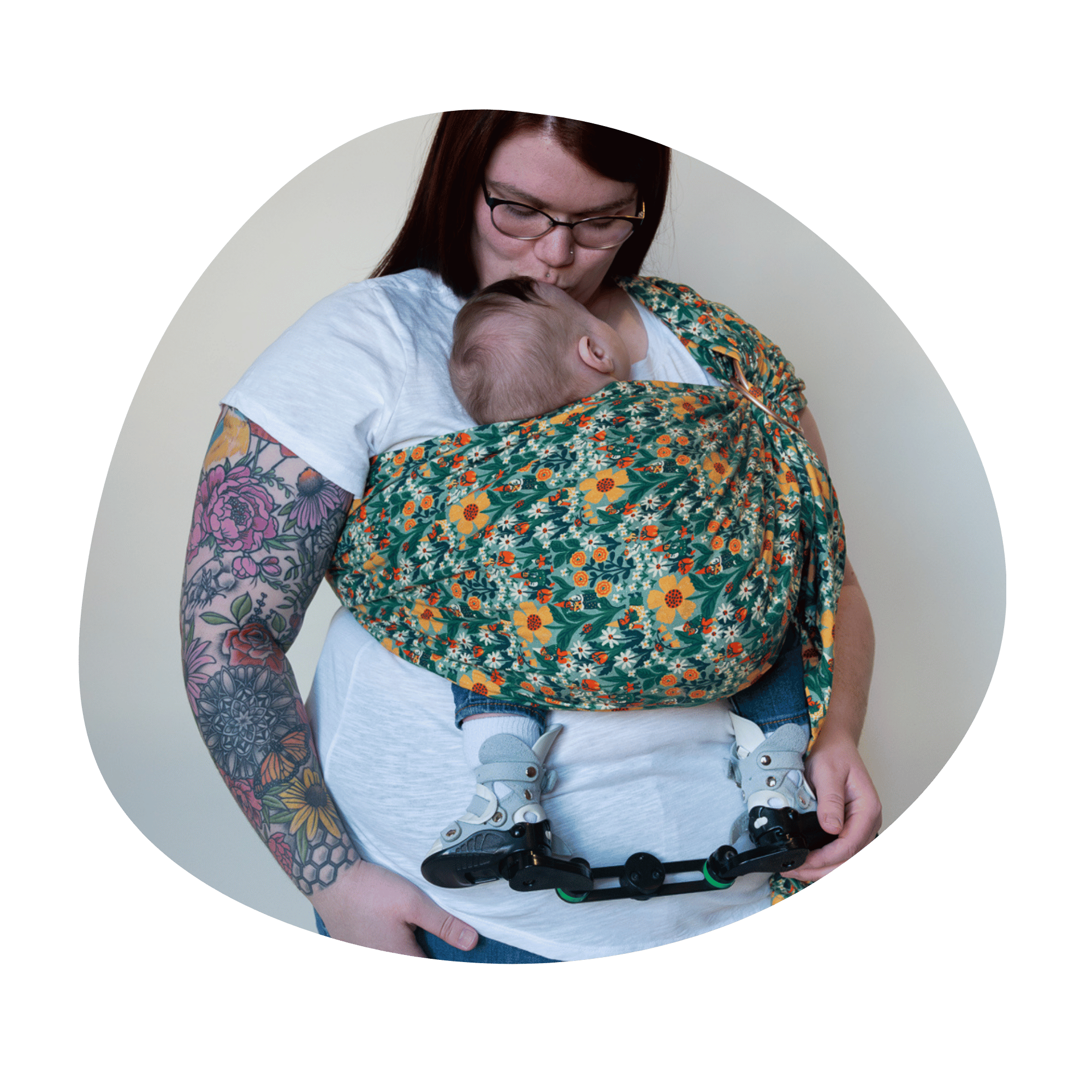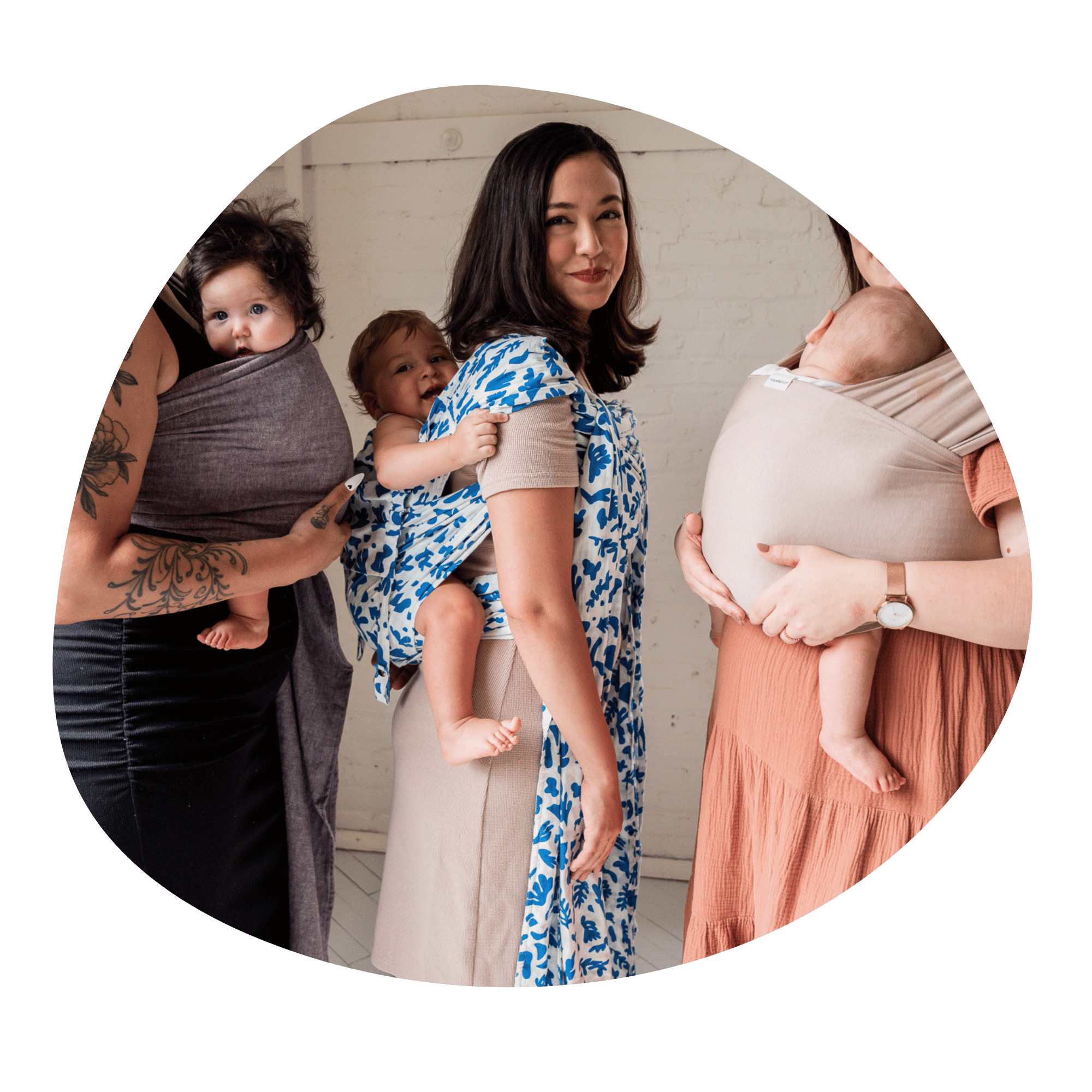Parenting After Miscarriage: How I'm Navigating Grief, Kids, and Trying Again
I was at the grocery store last week when I saw her, a mom with a tiny newborn in a baby carrier. The baby couldn't have been more than a few weeks old, all scrunched up and sleeping peacefully. And I just stood there in the produce section, frozen, with tears burning behind my eyes.
My six-year-old tugged on my sleeve. "Mom, can we get strawberries?"
And just like that, I was back. Back to the present. Back to my reality of four kids who need strawberries and don't have time to let me fall apart in the grocery store.
This is what parenting after miscarriage looks like for me.
Table of Contents
The Loss That Changed Everything
Three months ago, I had a missed miscarriage that ended with a D&C. I thought I was in the clear, almost past the first trimester, ready to finally exhale and be excited. But then the ultrasound room went quiet. That horrible, deafening quiet where you know something is wrong before anyone says a word. The baby wasn't there. Not in the way it was supposed to be.
What followed was a nightmare of repeat ultrasounds, bloodwork, and waiting. So much waiting. Then the procedure itself. It was very, very hard.
But here's what makes it even more complicated: that wasn't my only loss this year. I've had three early chemical pregnancies in addition to the miscarriage. Four losses in one year. I'm currently in month three post-miscarriage, and honestly, I expected to be pregnant again by now. I was briefly, but it was another chemical pregnancy that slipped away.
The "Broken Again" Feeling
I did IVF for my first baby. After that, I had three more kids without any help. My body figured it out, or so I thought. Now, with all these losses, I'm back to questioning everything. Am I "broken again"? I've done all the tests, seen all the doctors, and I still don't have clear answers. It's hard not to feel like my body is betraying me.
When Your Kids Ask the Hard Questions
I have four kids: 8, 6, 4, and 2. They all know about the miscarriage. I let them know I lost the baby, and the two older ones understood and were genuinely sad. The younger two didn't quite grasp it at first, but they've asked questions since then. Hard questions.
"Do you want another baby?"
"Are you trying?"
"Why do you have a belly? Is it a new baby?"
And the one that absolutely gutted me: "Will your next baby die too?"
I navigate these questions as they come, with as much honesty as I can muster in the moment. I don't have a perfect script. Sometimes I cry. Sometimes they see me sad and don't understand why. But we talk about it, and I think that matters more than having all the right words.
How They Pull Me Out of Grief
Here's the thing about parenting through loss: my grief and my joy don't feel like they're battling each other. My kids pull me out of my grief instead. Four kids don't allow much time for wallowing, and honestly, they seem to pick up on when I'm sad and instinctively try to pull me out of it.
They ground me. A feral snuggle from my two-year-old. A silly joke from my eight-year-old. The small moments throughout the day that pull me back to the present. These moments don't erase the grief, but they make space for something else to exist alongside it.
Trying Again: Hope Mixed with Fear
Trying to conceive again has been a strange mix of hope and terror. I find myself obsessed during the two-week wait, analyzing every twinge, every symptom, spiraling into Google rabbit holes at 2 a.m. With all the losses I've experienced, I expect to lose pregnancies now. I expect them to slip away. And so far, that expectation has been proven right. That's hard to admit, but it's true.
I'm actively trying not to feel that way, but the fear is real.
During the two-week wait, I've developed some small coping strategies:
I eat sushi and tell myself, "This may be the last time!"
I focus on warming my body, cozy socks, small routines, and being gentle with myself
I get outside as much as possible to avoid getting stuck in my head
I let friends drag me out of the house, especially during those anxiety-inducing final days before testing (or during, because I am one of those early testers)
I'm trying not to make conception feel like a chore, trying to stay optimistic. But sometimes when I think about it all, like right now, as I write this, it gets really tough.
What Helps (And What Doesn't)
People mean well, but some things just don't land right:
"When are you trying again?" (I am. It's not working.)
"Maybe it was meant to be." (Please don't.)
What actually helps:
Gentle check-ins without pressure to talk about it
Friends who drag me out of the house during hard weeks
People who just sit with me without trying to fix anything
The community of women who share this sad but common thread
I don't always want to talk about my losses, but knowing people are there makes all the difference.
Finding Hope in Small Moments
So where's the hope in all of this?
It's in small moments with my kids. The way they love fiercely and without condition. The way they remind me every single day that I am already a mother, even on the days I'm grieving the babies I've lost.
It's in understanding my body better and paying closer attention to what I need. It's in remembering that I have support and options. It's in having faith that my time will come.
What I'd Tell Another Parent in the Thick of It
Grief is not linear. The smallest thing will hit you. A baby in a carrier, a pregnancy announcement on Instagram, a due date that passes, and grief will come rushing back. But then something else will pivot you out of it. Your toddler will do something ridiculous. Your partner will hold your hand. You'll laugh at something completely unexpected.
Talk about it. I have found the most beautiful community of women who share this sad but incredibly common experience. It feels so hush-hush behind closed doors, and I'm pushing past that. Miscarriage is not taboo. It is not your fault. Talking about it helps.
You'll find that so many people relate more than you realized. You'll hear other stories that make you feel less alone. And on the hard days, the days when you see a newborn in a grocery store and have to fight back tears, you'll remember that you're not the only one carrying this weight.
Where I Am Now
I'm still here. Still parenting my four beautiful kids. Still trying to conceive. Still hoping. Still grieving. All of it at once.
Some days are harder than others. Some days I feel strong and resilient. Other days I feel broken and scared. But I'm learning that all of those feelings can be true at the same time.
If you're parenting after miscarriage, know this: You are not alone. Your grief is valid. Your hope is valid. Your fear is valid. And your strength, even when you don't feel strong, is more powerful than you know.
We carry our losses with us, but we also carry our love. And somehow, we keep going. One day, one moment, one breath at a time.
Summary
Parenting after miscarriage involves balancing grief, hope, and daily responsibilities.
Everyday experiences, like seeing newborns, can trigger strong emotions.
Children can help parents process grief through love, play, and connection.
Trying to conceive again may bring anxiety, fear, and hope simultaneously.
Supportive approaches include gentle check-ins, shared presence, and community.
Small moments of connection and care can foster hope alongside grief.
Grief, hope, and strength can coexist, and parents are not alone in the experience.
Support & Resources
Information and Links to More Options for Support from Planned Parenthood
Information and Links to More Options for Support from March of Dimes
Information and Links to More Options for Support for Dads and Partners from Tommy's
An Article from an OB-GYN Finding Emotional Support After Pregnancy Loss from the American College of Obstetricians and Gynecologists
Weekly Zoom Support Group from Empty Arms Bereavement












